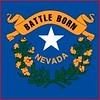"When the city council bans liquor sales on Sundays, the Baptists rejoice—it's wrong to drink on the Lord's day. The bootleggers, rejoice, too. It increases the demand for their services.
The Baptists give the politicians cover for doing what the bootleggers want. No politicians says we should ban liquor sales on Sunday in order to enrich the bootleggers who support his campaign. The politician holds up one hand to heaven and talk about his devotion to morality. With the other hand, he collects campaign contributions (or bribes) from the bootleggers.
Yandle points out that virtually every well-intentioned regulation has a bunch of bootleggers along for the ride—special interests who profit from the idealism of the activists and altruists."
With all of the back-and-forth among the politicians concerning the financial services markets, it's instructive to keep this idea in mind. We can substitute the working poor for the Baptists, and bankers for the bootleggers.
Everyone would like to help the poor. Rising from modest means is central to the great American story. The poor, by definition, don't have any money. Banks, being a for profit enterprise, don't make loans to people with no collateral. Enter bi-partisanship.
The bankers would need some way of covering their inevitable losses from loaning money to uncollateralized borrowers. A set of regulations collectively known as the Glass-Steigal Act prevented bankers from doing anything beyond traditional banking. Specifically, the Banking Act of 1933.
Still riding the deregulation wave, started by, of all people, President Carter with the Airline Deregulation Act of 1978, Phil Gramm (R-Tx)led the charge for deregulating the banking sector and creating the financial services sector in it's place. With a bi-partisan vote in the House, a straight party line vote in the senate, and signed by a Democratic president, Nov. 12, 1999, the Gramm-Leach-Bliley Act effectively repealed the Banking Act of 1933, guaranteeing the biggest party since the roaring 20's would continue.
No matter who wins the next election, we're going to be hearing a lot about "Wall Street greed" well into the foreseeable future. Speculators, short sellers, manipulators, will all be held up for public debate. Every little old lady with 100 shares of Exxon/Mobile will be turned into a wild speculator. Anyone who took out a home improvement loan, and then spent the money on their vacation will be called a cheat.
The term "predatory lender" is especially hysterical. Did you, or anyone you know buy a house you didn't want? How about a car? Have you ever filled out a credit card application under duress? Have masked men ever invaded your home and installed a new washer/dryer against your will? It's ridiculous. As an old Pogo cartoon once put it, "We have met the enemy, and they is us." That's the theory anyway.




No comments:
Post a Comment